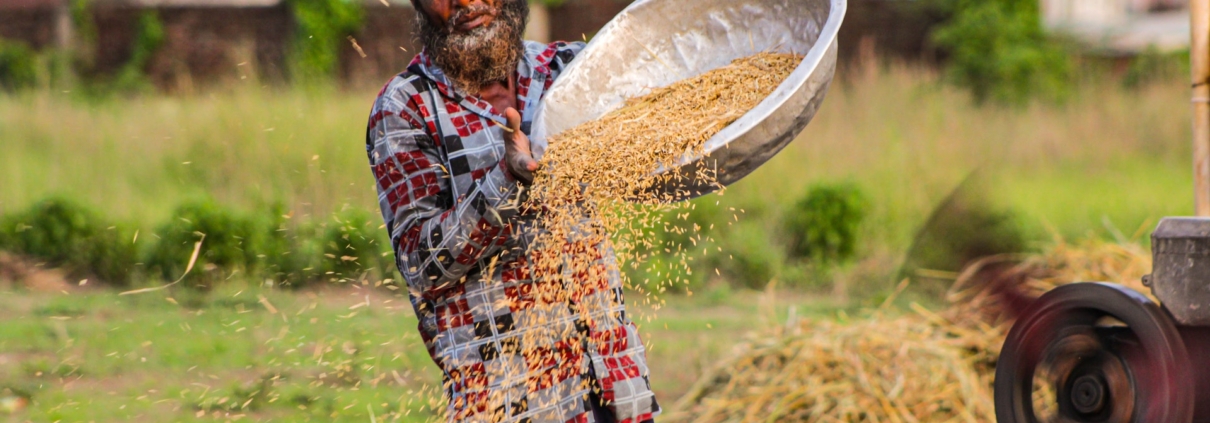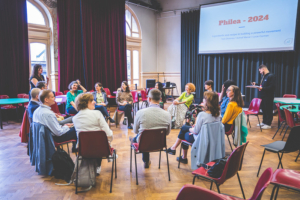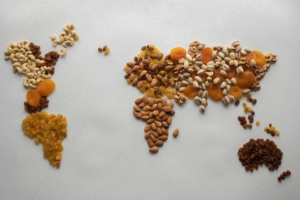Good Food hub leads discourse supporting small food businesses to advance decent work and living incomes and wages
Alice Lee
Latest posts
Share:
The Decent Work and Living Incomes and Wages (DWLIW) Coalition is working to improve conditions that will positively impact up to 1.5 billion people working in food systems across the world – from pastoralists to small businesses, to food preparers.
The urgency of this ambitious goal is driven largely by the impacts of Covid-19 over the past two years, which brought forward the essentiality of such workers to our day-to-day lives.
With two-thirds of the extreme poor engaged in agriculture, a sector in which more than 90 percent of employment is informal, SMEs play a critical role in strengthening the incomes and wages of food value chain workers across the world.
On March 23, 2022, the Good Food Hub hosted a dialogue with the DWLIW Coalition and small businesses. The dialogue brought food entrepreneurs in direct conversation with representatives from international organisations like ILO, IFAD, and WBCSD, to highlight how small businesses are advancing decent work in their specific value chains, as well as the constraints they face in expanding this impact.
Three key topics discussed included:
- Prioritizing women accelerates systems change.
- Digital tools can accelerate decent work, and they can also exacerbate the digital divide.
- A holistic supply chain approach, with producers/those most vulnerable at the centre, is needed.
Prioritizing women accelerates systems change
Alejandro of Indiegrow (Colombia) and Lastiana of Aliet Green (Indonesia) both shared about the specific challenges women face in accessing decent work.
Lastiana shared her personal journey facing discrimination in Indonesia as a woman starting an innovative business. Indiegrow works to increase women’s decision-making power in the coffee value chain, so they can have greater agency in their income earned and overall role in the sector.
As both businesses prioritize improving women’s livelihoods in their business operations, both have seen the rapid knock-on effects.
Digital tools can accelerate decent work, and they can also exacerbate the digital divide
Digital tools, like e-commerce and logistics platforms, can improve the efficiency of value chains, with the potential to bring more value back to the producer.
Hemense of AFEX Commodities (Nigeria) shared how their business includes digital platforms as one way of improving the wider infrastructure of Nigeria to increase farmer returns. However, they also employ non-digital strategies to reach areas where internet connection is limited.
In addition to internet access as a barrier, many small businesses, producers, and other food workers are simply too fatigued to learn new technologies, so accessing digital resources can be a barrier.
A holistic supply chain approach, with producers/those most vulnerable at the centre, is needed
Decent work and living incomes and wages is an issue that impacts the entire supply chain, and it requires transparency across the supply chain to improve.
The entrepreneurs called for restructuring supply chains in a way that allows producers and other vulnerable groups in supply chains to capture more value. The DWLIW Coalition is bringing together the broader infrastructure to improve how the entire food economy is run.
This dialogue brought together champions for living wages working at different levels of the food system in conversation, and the Coalition is eager to continue surfacing these voices to ground-truth their efforts that often operate at a broader policy level, but closely affect small businesses.
This article was first published on the Good Food Hub on March 30, 2022.
Are you making our food more nourishing, sustainable, equitable and resilient? Join the Good Food Hub today.
Photo by Omer Faruq Khan from Pexels












